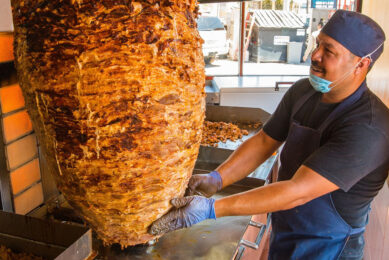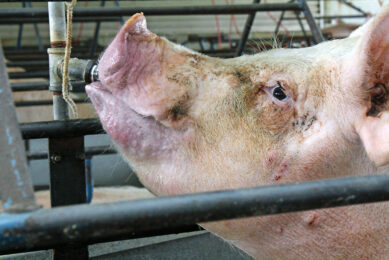AMI: Higher food prices on the horizon

The United States Department of Agriculture (USDA) projects that U.S. corn production for 2011-12 will be 417 million bushels lower with expected yields down from last month across most of the Corn Belt. The new World Agricultural Supply and Demand Estimate (WASDE) report also forecasts a global decline in corn stocks.
“Declining corn supplies will put demand for corn by the ethanol industry and livestock and poultry producers on a collision course that can mean just one thing: higher feed prices and higher food prices,” said American Meat Institute President J. Patrick Boyle.
The national average corn yield is forecast at 148.1 bushels per acre, down 4.9 bushels from August and 16.6 bushels below the 2009-10 record. As forecast by USDA, this year’s yield would be the lowest since 2005-06. Total corn supplies for 2011-2012 are lowered 442 million bushels with a 20 million-bushel reduction in carryin and a 5 million reduction in expected imports.
“If the message wasn’t clear already, this latest report puts a bold exclamation point on the need to end national policies that encourage the burning of food for fuel. This policy hurts our nation’s livestock and poultry sector and it hurts American consumers,” Boyle said.
Boyle said an ethanol blenders tax credit and tariffs on imported ethanol should not be renewed when they expire at the end of 2011 and that all government policies concerning corn based ethanol should be reviewed and addressed, such as the Renewable Fuels Mandate (RFS) and efforts to increase the ethanol blend levels in gasoline. Boyle pointed out that for the first time in history, this year the ethanol industry is expected to use more corn than is used for animal feed.
“With our nation’s economy stalled and American’s struggling to make ends meet, it is essential that we curtail our federal policy of burning food for fuel,” Boyle said. “There are some economic factors that are difficult to control, but this is a situation where our government has not allowed the marketplace to work.”
Source: AMI











